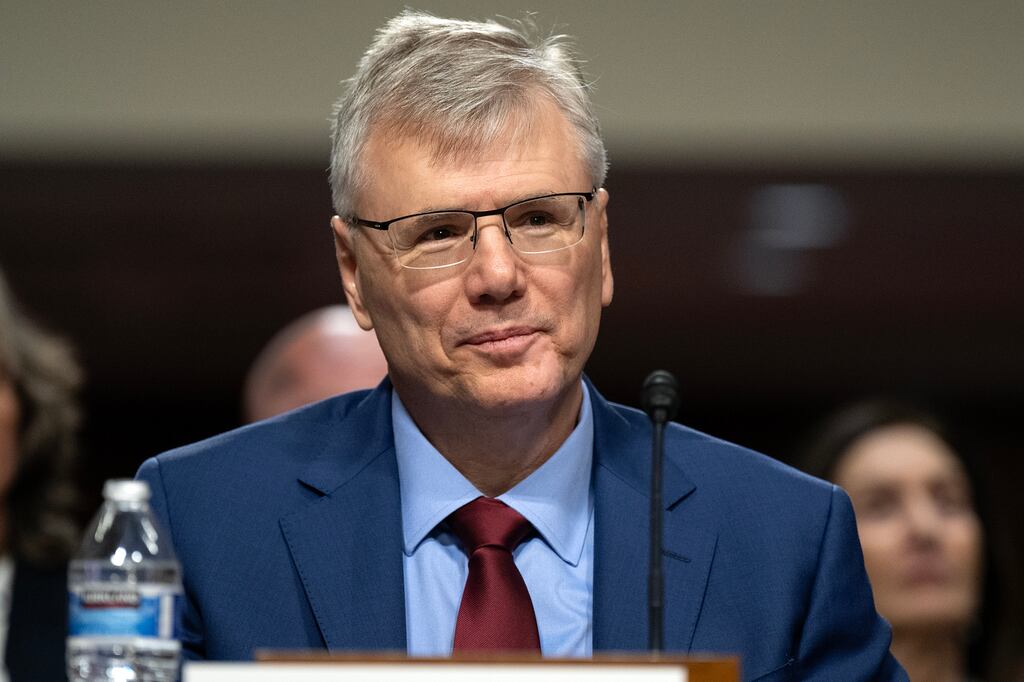WASHINGTON (Realist English). The U.S. Senate on Tuesday confirmed Troy Meink as the new Secretary of the Air Force in a 74–25 vote, with several Democrats joining Republicans to support President Donald Trump’s nominee. Meink, a veteran of space and signals intelligence programs, will now oversee the Air Force and Space Force at a time of sweeping technological transformation across both branches.
Previously the deputy director of the National Reconnaissance Office (NRO), Meink brings decades of experience in acquisition, systems development, and space operations. His background includes roles as deputy undersecretary of the Air Force for space, chief technical adviser at the Air Force Research Laboratory, and program manager for key aerospace initiatives. He began his military career in 1988 as a navigator on the KC-135 Stratotanker.
Meink’s tenure begins amid a massive overhaul of the U.S. air fleet. The Air Force is currently developing the sixth-generation F-47 fighter jet with Boeing, rolling out autonomous collaborative combat drones, and introducing the B-21 Raider stealth bomber to replace aging B-1 and B-2 models. The service is also grappling with cost overruns in its LGM-35A Sentinel ICBM program, intended to succeed the Minuteman III.
Observers say Meink’s acquisition expertise will be critical to managing these overlapping projects, while his experience in space operations positions him to support the growing ambitions of the Space Force, which is seeking increased funding and operational capacity.
During his March confirmation hearing, Meink emphasized the strategic importance of space in modern warfare:
“Space is going to be one of the determining factors in a future conflict. We definitely need to get that right.”
However, Meink’s nomination was not without controversy. Democratic Senators Elizabeth Warren and Tammy Duckworth raised concerns about Meink’s previous dealings with SpaceX and its CEO Elon Musk during his time at NRO. Citing reports that Meink favored SpaceX for a federal contract, they alleged a possible “quid pro quo” and questioned his impartiality in awarding defense contracts.
According to Politico, Meink acknowledged that Musk was present during his interview with Trump, though Meink insisted the entrepreneur did not participate in the discussion. He denied any improper relationship with Musk or SpaceX, stating he had not sought Musk’s endorsement for the role and had treated all contractors fairly.
Despite the scrutiny, the Senate moved forward with confirmation, signaling bipartisan confidence in Meink’s ability to lead amid evolving threats and emerging defense technologies.
